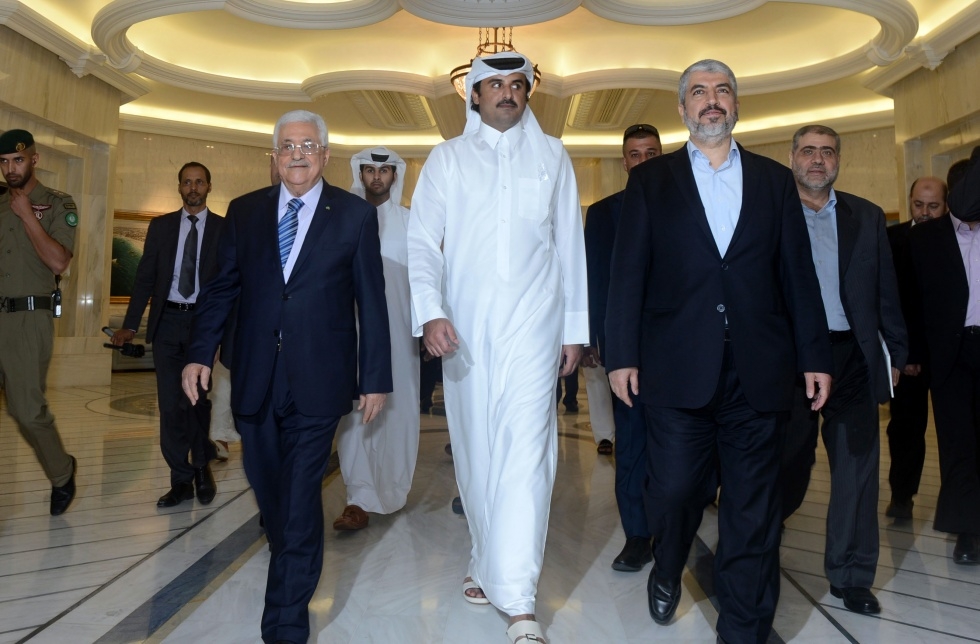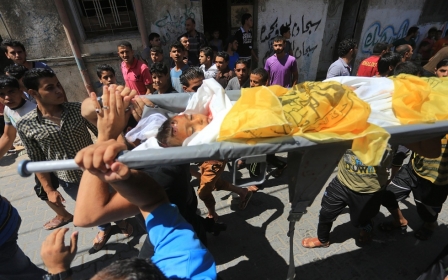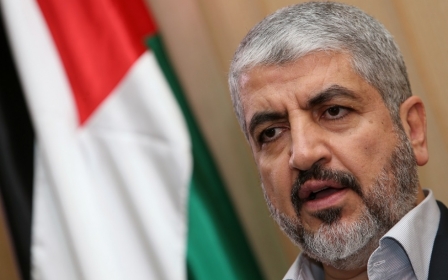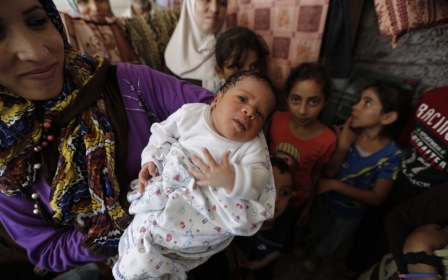Qatar hosts Abbas-Meshaal meeting over Gaza

Palestinian president Mahmud Abbas held talks with exiled Hamas leader Khaled Meshaal on Thursday as renewed fighting raged in Gaza following the collapse of Egyptian-brokered truce efforts.
The talks in Doha, where Meshaal is based, were hosted by Qatari emir Sheikh Tamim bin Hamad al-Thani, a key backer of Hamas, the Gulf state's QNA news agency reported.
A Palestinian delegate told AFP that the talks between the three leaders lasted nearly three hours and were expected to be followed by a two-way meeting between Abbas and Meshaal.
The head of the Palestinian negotiating team at the abortive truce talks, Azzam al-Ahmed, joined the meeting, along with Palestinian Authority security chief Majid Faraj and senior official Saeb Erakat, the official Palestinian news agency WAFA said.
Meshaal was accompanied by his deputy Mussa Abu Marzuk, who also took part in the Cairo talks which collapsed as fighting resumed on Tuesday.
The talks focused on efforts aimed at halting Israel's military onslaught on the coastal territory and prospects for establishing a Palestinian state with East Jerusalem as its capital, according to Qatar's official news agency.
Sheikh Tamim later held a separate meeting with Abbas to discuss Qatari-Palestinian relations and recent developments on the Palestinian stage.
The Hamas armed wing declared the truce efforts over Wednesday after Israel carried out an abortive assassination attempt on its leader Mohammed Deif, killing his wife and two of his children.
"There will be no return to talks after today and any move in this direction will never achieve any result," said Ezzedine al-Qassam Brigades spokesman Abu Obeida.
A new Israeli air strike killed three other senior Hamas commanders early on Thursday.
The renewed strikes pushed to 2,075 the number of people killed in Gaza since July 8, around three-quarters of them civilians, according to the United Nations.
On the Israeli side, 67 people have been killed, the vast majority of them soldiers.
It is the deadliest confrontation between Israel and Hamas since the second Palestinian intifada, or uprising, between 2000 and 2005.
The Palestinians have been demanding an end to Israel's eight-year blockade of Gaza and the opening of an airport and seaport.
Israel has been demanding the disarming of groups in the territory, something rejected by the Palestinians.
"Both the Netanyahu government and Hamas want to come out of these talks and declare some sort of victory but of course both sides are very anxious that the other cannot," Chris Doyle, Director of the London-based Council for Arab-British Understanding (CAABU) told MEE.
"For Israel they do not want the message to go out that the use of force, the use of rocket fire, has in some way rewarded Hamas. That would be domestically extremely difficult for Netanyahu," he said.
"Hamas also has to answer to Palestinians after all of this horror, the assault on Gaza, what has it achieved? Is there no lifting of the siege, no port, no airport after all of this bloodshed and the diplomatic trick will be how to actually manage to bridge their seemingly unbridgeable positions," he added.
"Both sides need a way out of this crisis and that is the role of mediators," explained Doyle but "one of the challenges here is that Egypt, which in the past had the trust of both parties … is not trusted by Hamas."
New MEE newsletter: Jerusalem Dispatch
Sign up to get the latest insights and analysis on Israel-Palestine, alongside Turkey Unpacked and other MEE newsletters
Middle East Eye delivers independent and unrivalled coverage and analysis of the Middle East, North Africa and beyond. To learn more about republishing this content and the associated fees, please fill out this form. More about MEE can be found here.




